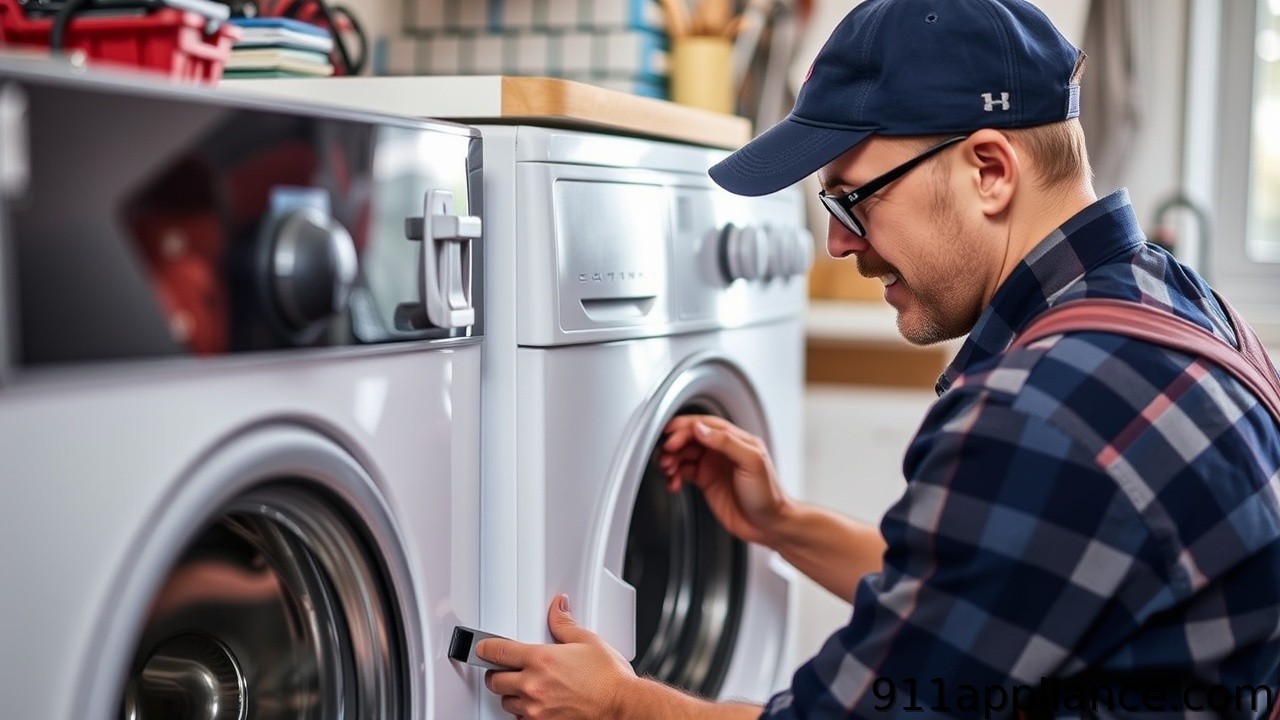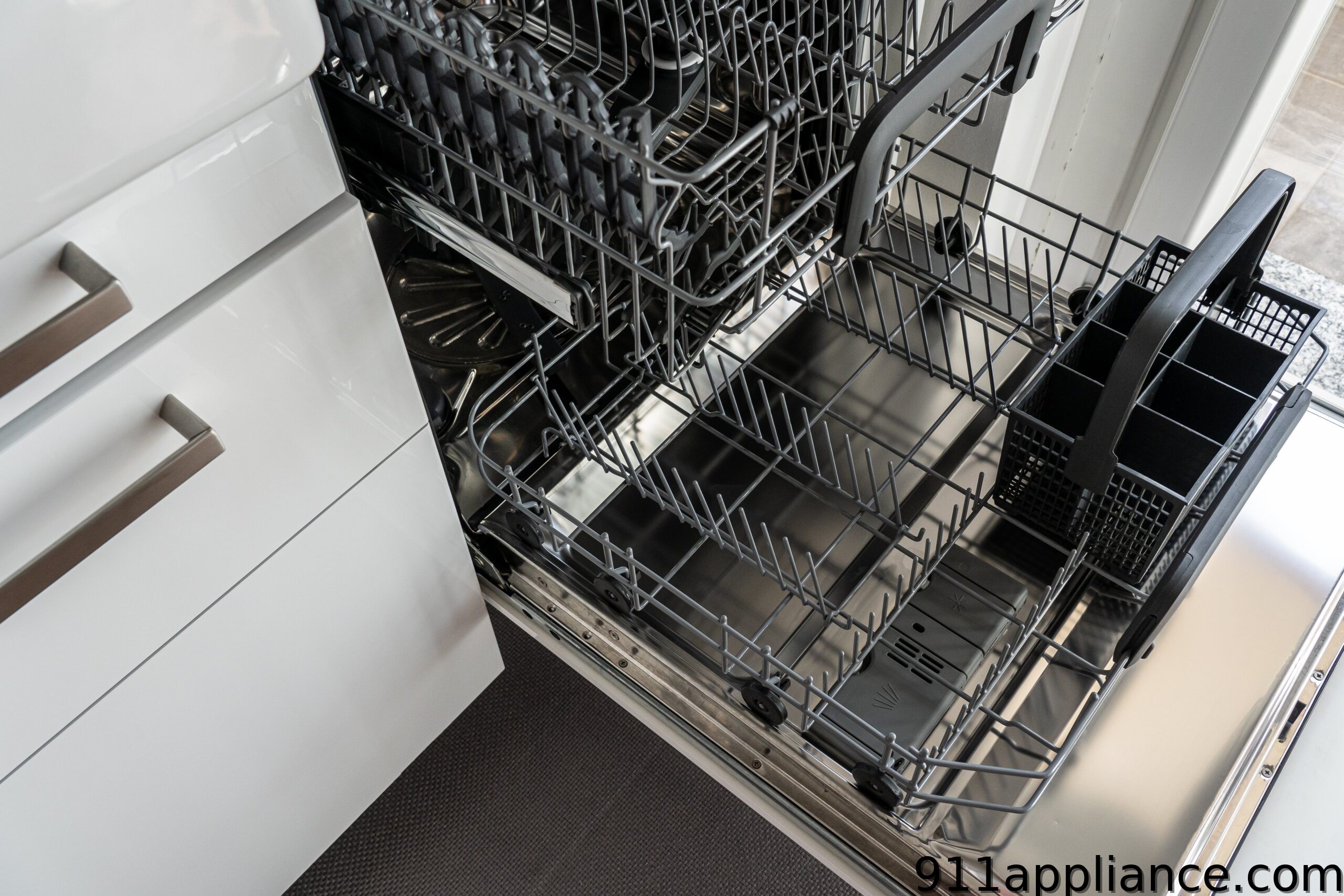DIY appliance repair is becoming increasingly popular as people look for ways to save money and become more self-sufficient. Being able to fix your own appliances not only saves you the cost of hiring a professional, but it also gives you a sense of accomplishment and independence. In this blog post, we will explore the world of DIY appliance repair, providing you with essential information, tips, and techniques to successfully repair your appliances at home.
Table of Contents
- Key Takeaways
- Safety First: Essential Precautions to Take Before Starting DIY Appliance Repair
- The Importance of Proper Tools and Equipment for DIY Appliance Repair
- Common DIY Appliance Repair Mistakes to Avoid
- Understanding Your Appliance: Tips for Troubleshooting and Diagnosis
- DIY Appliance Repair vs. Professional Repair: When to Call in the Experts
- How to Find and Order Replacement Parts for Your Appliance
- Step-by-Step Guide to DIY Appliance Repair: Best Practices and Techniques
- Preventative Maintenance: How to Keep Your Appliances Running Smoothly
- DIY Appliance Repair for Energy Efficiency: Tips for Saving Money on Your Utility Bills
- Troubleshooting Tips for Specific Appliances: Refrigerators, Washers, Dryers, and More
- FAQs
- What is DIY appliance repair?
- Is DIY appliance repair safe?
- What are some common appliance repair issues?
- What are some tips for effective DIY appliance repair?
- When should I seek professional help for appliance repair?
Key Takeaways
- Always prioritize safety before starting any DIY appliance repair
- Proper tools and equipment are crucial for successful DIY appliance repair
- Avoid common mistakes such as not unplugging the appliance or not following instructions carefully
- Understanding your appliance and troubleshooting tips can help diagnose and fix issues
- Call in professional help when necessary and order replacement parts from reputable sources.
Safety First: Essential Precautions to Take Before Starting DIY Appliance Repair
When it comes to DIY appliance repair, safety should always be your top priority. Working with electrical appliances can be dangerous if proper precautions are not taken. Before starting any repair work, it is important to ensure that the appliance is unplugged or the power source is turned off. This will prevent any accidental electrocution or injury.
In addition to turning off the power, it is also important to wear protective gear such as gloves and safety goggles. This will protect you from any sharp edges or flying debris that may occur during the repair process. It is also a good idea to have a fire extinguisher nearby in case of any electrical fires.
The Importance of Proper Tools and Equipment for DIY Appliance Repair
Having the right tools and equipment is crucial for successful DIY appliance repair. Using improper tools can not only make the repair process more difficult but can also cause damage to the appliance itself. It is important to invest in high-quality tools that are specifically designed for appliance repair.
Some essential tools for DIY appliance repair include a multimeter, screwdrivers, pliers, and a socket set. These tools will allow you to test electrical connections, remove screws and bolts, and make adjustments as needed. It is also important to have a good set of wire cutters and strippers for any electrical work that may be required.
Common DIY Appliance Repair Mistakes to Avoid
While DIY appliance repair can be a cost-effective and rewarding endeavor, there are some common mistakes that many people make. One of the most common mistakes is not properly diagnosing the problem before attempting to fix it. It is important to take the time to troubleshoot and identify the root cause of the issue before starting any repair work.
Another common mistake is not following the manufacturer’s instructions or guidelines. Each appliance is unique and may require specific steps or procedures for repair. It is important to read the manual or consult online resources to ensure that you are following the correct steps.
Understanding Your Appliance: Tips for Troubleshooting and Diagnosis
Understanding your appliance is key to successful DIY appliance repair. Before attempting any repairs, it is important to familiarize yourself with how the appliance works and what each component does. This will make it easier to troubleshoot and diagnose any issues that may arise.
One tip for troubleshooting is to start with the simplest solution first. Sometimes, a simple fix such as cleaning a clogged filter or replacing a worn-out belt can solve the problem. It is also helpful to consult online forums or resources for common issues and solutions related to your specific appliance.
DIY Appliance Repair vs. Professional Repair: When to Call in the Experts
While DIY appliance repair can save you money, there are some instances where it is best to call in a professional. If you are unsure of your abilities or if the repair requires specialized knowledge or tools, it is best to leave it to the experts. Additionally, if the appliance is still under warranty, attempting DIY repairs may void the warranty.
Professional repair may also be necessary if the repair involves complex electrical work or if there is a risk of further damage or injury. It is important to assess your own skills and capabilities before deciding whether to attempt DIY repairs or call in a professional.
How to Find and Order Replacement Parts for Your Appliance
Finding and ordering replacement parts for your appliance is an important step in DIY appliance repair. There are several ways to find the right parts for your appliance. One option is to contact the manufacturer directly and order the parts through them. They will be able to provide you with the exact part number and ensure that you are getting a genuine replacement.
Another option is to search online for appliance parts retailers. There are many websites that specialize in selling replacement parts for a wide range of appliances. It is important to ensure that you are purchasing from a reputable seller and that the part is compatible with your specific appliance model.
Step-by-Step Guide to DIY Appliance Repair: Best Practices and Techniques
Now that you have the necessary tools, knowledge, and replacement parts, it’s time to dive into the actual repair process. Here is a step-by-step guide to DIY appliance repair:
1. Start by unplugging the appliance or turning off the power source.
2. Remove any screws or bolts that are holding the appliance together.
3. Carefully remove any panels or covers to access the internal components.
4. Use your multimeter to test electrical connections and identify any faulty components.
5. Replace any faulty components with the new ones you have ordered.
6. Reassemble the appliance, making sure all screws and bolts are tightened securely.
7. Plug in the appliance or turn on the power source to test if the repair was successful.
Preventative Maintenance: How to Keep Your Appliances Running Smoothly
Preventative maintenance is key to keeping your appliances running smoothly and avoiding costly repairs in the future. Here are some tips for maintaining your appliances:
1. Clean or replace filters regularly to prevent clogs and improve efficiency.
2. Check for any signs of wear or damage and replace worn-out parts as needed.
3. Keep appliances clean by wiping them down regularly and removing any debris or dust.
4. Follow the manufacturer’s guidelines for maintenance and cleaning.
5. Schedule regular inspections or tune-ups with a professional to catch any potential issues before they become major problems.
DIY Appliance Repair for Energy Efficiency: Tips for Saving Money on Your Utility Bills
DIY appliance repair can also help you save money on your utility bills by improving energy efficiency. Here are some tips for maximizing energy efficiency:
1. Clean or replace air filters in HVAC systems regularly to improve airflow and reduce energy consumption.
2. Insulate your water heater and pipes to prevent heat loss and reduce energy usage.
3. Use energy-efficient light bulbs and appliances that have earned the ENERGY STAR label.
4. Seal any air leaks around windows and doors to prevent drafts and reduce heating and cooling costs.
5. Regularly clean the coils on your refrigerator to improve efficiency and reduce energy consumption.
Troubleshooting Tips for Specific Appliances: Refrigerators, Washers, Dryers, and More
Each appliance has its own unique set of issues and troubleshooting methods. Here are some troubleshooting tips for specific appliances:
Refrigerators:
– Check the temperature settings to ensure they are set correctly.
– Clean the condenser coils to improve cooling efficiency.
– Check the door seals for any signs of wear or damage.
Washers:
– Check the water supply hoses for any leaks or blockages.
– Clean the detergent dispenser drawer to prevent clogs.
– Balance the load to prevent excessive vibration during the spin cycle.
Dryers:
– Clean the lint filter after each use to prevent clogs and improve drying efficiency.
– Check the vent hose for any blockages or restrictions.
– Ensure that the dryer is properly vented to the outside to prevent moisture buildup.
In conclusion, DIY appliance repair is a valuable skill that can save you money and give you a sense of accomplishment. By taking the necessary safety precautions, having the right tools and equipment, and understanding your appliance, you can successfully repair your appliances at home. However, it is important to know your limits and when it is best to call in a professional. With the right knowledge and resources, you can become a DIY appliance repair expert and keep your appliances running smoothly for years to come.
FAQs
What is DIY appliance repair?
DIY appliance repair refers to the practice of repairing household appliances by oneself without the help of a professional technician.
Is DIY appliance repair safe?
DIY appliance repair can be safe if proper precautions are taken. It is important to turn off the power supply and unplug the appliance before attempting any repairs. Additionally, it is important to use the correct tools and follow the manufacturer’s instructions.
What are some common appliance repair issues?
Common appliance repair issues include faulty motors, broken belts, clogged filters, and malfunctioning thermostats.
What are some tips for effective DIY appliance repair?
Some tips for effective DIY appliance repair include researching the problem thoroughly, using the correct tools, following the manufacturer’s instructions, and seeking professional help if necessary.
When should I seek professional help for appliance repair?
It is recommended to seek professional help for appliance repair if the problem is beyond your skill level or if the appliance is still under warranty. Additionally, if the repair involves working with gas or electrical components, it is best to leave it to a professional technician.



